Lenin Quotes
Quotes tagged as "lenin"
Showing 1-30 of 87

“If you took the most ardent revolutionary, vested him in absolute power, within a year he would be worse than the Tsar himself.”
―
―
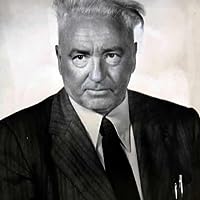
“It is the fate of great achievements, born from a way of life that sets truth before security, to be gobbled up by you and excreted in the form of shit. For centuries great, brave, lonely men have been telling you what to do. Time and again you have corrupted, diminished and demolished their teachings; time and again you have been captivated by their weakest points, taken not the great truth, but some trifling error as your guiding principal. This, little man, is what you have done with Christianity, with the doctrine of sovereign people, with socialism, with everything you touch. Why, you ask, do you do this? I don't believe you really want an answer. When you hear the truth you'll cry bloody murder, or commit it. … You had your choice between soaring to superhuman heights with Nietzsche and sinking into subhuman depths with Hitler. You shouted Heil! Heil! and chose the subhuman. You had the choice between Lenin's truly democratic constitution and Stalin's dictatorship. You chose Stalin's dictatorship. You had your choice between Freud's elucidation of the sexual core of your psychic disorders and his theory of cultural adaptation. You dropped the theory of sexuality and chose his theory of cultural adaptation, which left you hanging in mid-air. You had your choice between Jesus and his majestic simplicity and Paul with his celibacy for priests and life-long compulsory marriage for yourself. You chose the celibacy and compulsory marriage and forgot the simplicity of Jesus' mother, who bore her child for love and love alone. You had your choice between Marx's insight into the productivity of your living labor power, which alone creates the value of commodities and the idea of the state. You forgot the living energy of your labor and chose the idea of the state. In the French Revolution, you had your choice between the cruel Robespierre and the great Danton. You chose cruelty and sent greatness and goodness to the guillotine. In Germany you had your choice between Goring and Himmler on the one hand and Liebknecht, Landau, and Muhsam on the other. You made Himmler your police chief and murdered your great friends. You had your choice between Julius Streicher and Walter Rathenau. You murdered Rathenau. You had your choice between Lodge and Wilson. You murdered Wilson. You had your choice between the cruel Inquisition and Galileo's truth. You tortured and humiliated the great Galileo, from whose inventions you are still benefiting, and now, in the twentieth century, you have brought the methods of the Inquisition to a new flowering. … Every one of your acts of smallness and meanness throws light on the boundless wretchedness of the human animal. 'Why so tragic?' you ask. 'Do you feel responsible for all evil?' With remarks like that you condemn yourself. If, little man among millions, you were to shoulder the barest fraction of your responsibility, the world would be a very different place. Your great friends wouldn't perish, struck down by your smallness.”
― Listen, Little Man!
― Listen, Little Man!
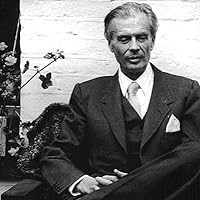
“It is possible to argue that the really influential book is not that which converts ten millions of casual readers, but rather that which converts the very few who, at any given moment, succeed in seizing power. Marx and Sorel have been influential in the modern world, not so much because they were best-sellers (Sorel in particular was not at all a widely read author), but because among their few readers were two men, called respectively Lenin and Mussolini.”
―
―
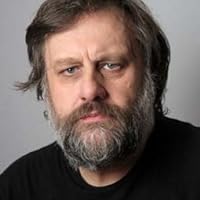
“The only way to survive such shitty times, if you ask me, is to write and read big, fat books, you know? And I’m writing now another book on Hegelian dialectics, subjectivity, ontology, quantum physics and so on. That’s the only way to survive. Like Lenin. I will use his example. You know what Lenin did, in 1915, when World War I exploded? He went to Switzerland and started to read Hegel.”
―
―

“If I had been an Italian I am sure that I should have been whole-heartedly with you from the start to finish in your triumphant struggle against the bestial appetites and passions of Leninism."
(Speech in Rome on 20 January, 1927, praising Mussolini)”
―
(Speech in Rome on 20 January, 1927, praising Mussolini)”
―
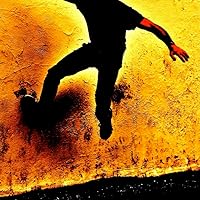
“If it’s not one god it’s another. Allah or oil. Jesus or Jewels. Lenin or lust.”
― Performance Anomalies
― Performance Anomalies
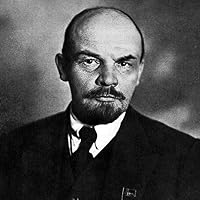
“Take any parliamentary country, from America to Switzerland, from France to England, Norway and so forth - in these countries the real business of the 'state' is preformed behind the scenes and is carried on by the departments, chancelleries and General Staffs. Parliament itself is given up to talk for the special purpose of fooling the 'common people.”
― The State and Revolution
― The State and Revolution
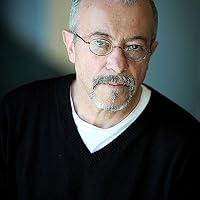
“The peasants of all lands recognize power and they salute it, whether it's good or evil.”
― The Posthuman Dada Guide: Tzara & Lenin Play Chess
― The Posthuman Dada Guide: Tzara & Lenin Play Chess

“Revolution is a very difficult task. It is beyond the power of any man to make a revolution. Neither can it be brought about on any appointed date. It is brought can it be brought about on an appointed date. It is brought about by special environments, social and economic. The function of an organized party is to utilise an such opportunity offered by these circumstances. And to prepare the masses and organize the forces for the revolution is a very difficult task. And that required a very great sacrifice on the part of the revolutionary workers. Let me make it clear that if you are a businessman or an established worldly or family man, please don't play with fire. As a leader you are of no use to the party. We have already very many such leaders who spare some evening hours for delivering speeches. They are useless. We require — to use the term so dear to Lenin — the "professional revolutionaries". The whole-time workers who have no other ambitions or life-work except the revolution. The greater the number of such workers organized into a party, the great the chances of your success.”
―
―
“For Lenin the premise was that a Marxist is someone “who extends the recognition of the class struggle to the recognition of the dictatorship of the proletariat”. This term dictatorship has been repeatedly seized on by the defenders of capitalism to insist “dictatorship” is what Marxists aim at all the time (and, of course there was Stalin wasn’t there?). But the term dictatorship when used by Marx stems from the material fact that this is really what the state is in any class society, whatever democratic institutions it clothes itself in. Thus the bourgeoisie today exercises a dictatorship over society by virtue of the parliamentary regime which gives an appearance of openness, but which in fact is easily dominated by those who control the means of production (and hence the means of production of ideas).
In this sense the dictatorship of the proletariat would be no different. It would also be an instrument of class rule but against the bourgeoisie and their allies. The main difference would be that this new dictatorship means a vast extension of democracy “which, for the first time, becomes democracy for the poor, democracy for the people, and not democracy for the money-bags.”
― Russia: Revolution and Counter-Revolution, 1905-1924. A View from the Communist Left
In this sense the dictatorship of the proletariat would be no different. It would also be an instrument of class rule but against the bourgeoisie and their allies. The main difference would be that this new dictatorship means a vast extension of democracy “which, for the first time, becomes democracy for the poor, democracy for the people, and not democracy for the money-bags.”
― Russia: Revolution and Counter-Revolution, 1905-1924. A View from the Communist Left

“The first thing he noticed with fascination was the shape of Lenin's "amazing skull"; filled to bursting with erudition and ideas, it "made one think not of anatomy but of architecture.”
― After the Romanovs: Russian Exiles in Paris from the Belle Époque Through Revolution and War
― After the Romanovs: Russian Exiles in Paris from the Belle Époque Through Revolution and War

“Marx, Engels, and Lenin have carried on the tradition of rational and non-mystical approach to all human problems; this is the tradition of the best Greek philosophers and the founders of modern science. Careful analysis; separation of factors; the following of causes into their effects; reliance on experiments; all are taken over into Marxism and provide it with a hard scientific core. There is nowhere any pandering to special intuitions or spiritual experiences.”
― Engels and Science
― Engels and Science
“People always were and always will be the stupid victims of deceit and self-deceit in politics until they learn to discover the interests of some class or other behind all moral, religious, political and social phrases, declarations, and promises...until they realize that every old institution, however barbarous and rotten it may appear to be, is maintained by the forces of some ruling classes.”
―
―

“Marx is the last or (depending on how you count it) the originating prophet. He was not just a thinker or a sage -he was the formulator of a world-revolutionary movement. A movement that claimed to know how to reorder absolutely everything in human affairs in order to arrive at a utopian society. A utopian society that has never been achieved but that activists across the West still dream of instituting next time: always next time.”
― The War on the West
― The War on the West

“We must also note that Engels is most definite in calling universal suffrage an instrument of bourgeois rule. Universal suffrage, he says, obviously summing up the long experience of German Social-Democracy, is
― The State and Revolution
"the gauge of the maturity of the working class. It cannot and never will be anything more in the present-day state."”
― The State and Revolution

“The public Lenin adopted a highly populist style of politics that would be recognisable – and imitated by many a rabble-rouser – a hundred years later, even in long-established, sophisticated democracies. He offered simple solutions to complex problems. He lied unashamedly.”
― Lenin the Dictator
― Lenin the Dictator

“El hambre era algo que Lenin fomentaba para que los hambrientos insatisfechos resultaran menos rebeldes y, al mismo tiempo, quisieran encararse a los burgueses, que, se suponía, los mataban de hambre.”
― Meneses en Skopelos
― Meneses en Skopelos
“Lenin had created the conditions for the rise of Stalin, but like Dr Frankenstein the monster outgrew him. He suffered a cerebral haemorrhage on 24 May 1922 and from this time forward his involvement in political affairs was sporadic. Too late he realised, on 25 December 1922, that Stalin represented a real threat to the stability of the Party. He penned a postscript to his famous “Testament”. This called for the removal of Stalin as General Secretary but significantly not from the Politburo. Despite Lenin’s request, the “Testament” was only discussed in the Central Committee, and Stalin’s offer to resign as General Secretary was rejected by Zinoviev and Kamenev. They had now formed a triumvirate with him, and during Lenin’s illness Zinoviev had assumed nominal leadership of the Party. Fearing that any demotion of Stalin would lead to the elevation of Trotsky, Zinoviev and Kamenev not only supported him, but hushed up the letters of Lenin.”
― Russia: Revolution and Counter-Revolution, 1905-1924. A View from the Communist Left
― Russia: Revolution and Counter-Revolution, 1905-1924. A View from the Communist Left
“Within days it was announced by the Central Committee that Lenin would not be buried next to his mother, as he had requested, but that his body would be embalmed and buried in the Kremlin Wall (and soon in a specially built mausoleum he remains to this day). His widow, Nadezhda Krupskaya, opposed this and further asked that nothing be named after him […] She was ignored, just as she was ignored in her request that Lenin’s “Testament” be read out to the Party Congress. Instead, Petersburg would now become Leningrad, the 21 January was to become a day of national mourning, and statues (which Lenin reputedly said were only good for “collecting bird shit”) would soon appear everywhere.”
― Russia: Revolution and Counter-Revolution, 1905-1924. A View from the Communist Left
― Russia: Revolution and Counter-Revolution, 1905-1924. A View from the Communist Left
“In a short essay called ‘Liberating Life: Women’s Revolution’, Öcalan (2013) outlines the core tenets of his sociological/historico-philosophical writings. Öcalan’s fundamental claim is that ‘mainstream civilisation’, commences with the enslavement of ‘Woman’, through what he calls ‘Housewifisation’ (2013). As such, it is only through a ‘struggle against the foundations of this ruling system’ (2013), that not only women, but also men can achieve freedom, and slavery can be destroyed. Any liberation of life, for Öcalan, can only be achieved through a Woman’s revolution. In his own words: ‘If I am to be a freedom fighter, I cannot just ignore this: woman’s revolution is a revolution within a revolution’ (2013).
For Öcalan, the Neolithic era is crucial, as the heyday of the matricentric social order. The figure of the Woman is quite interesting, and is not just female gender, but rather a condensation of all that is ‘equal’ and ‘natural’ and ‘social’, and its true significance is seen as a mode of social governance, which is non-hierarchical, non-statist, and not premised upon accumulation (2013). This can only be fully seen, through the critique of ‘civilisation’ which is equally gendered and equated with the rise of what he calls the ‘dominant male’ and hegemonic sexuality. These forms of power as coercive are embodied in the institution of masculine civilisation. And power in the matriarchal structures are understood more as authority, they are natural/organic. What further characterised the Neolithic era is the ways through which society was based upon solidarity and sharing – no surplus in production, and a respect for nature. In such a social order, Öcalan finds through his archaeology of ‘sociality’ the traces of an ecological ontology, in which nature is ‘alive and animated’, and thus no different from the people themselves.
The ways in which Öcalan figures ‘Woman’, serves as metaphor for the Kurdish nation-as-people (not nation-state). In short, if one manages to liberate woman, from the hegemonic ‘civilisation’ of ‘the dominant male’, one manages to liberate, not only the Kurds, but the world. It is only on this basis that the conditions of possibility for a genuine global democratic confederalism, and a solution to the conflicts of the Middle East can be thinkable. Once it is thinkable, then we can imagine a freedom to organise, to be free from any conception of ownership (of property, persons, or the self), a freedom to show solidarity, to restore balance to life, nature, and other humans through ‘love’, not power.
In Rojava, The Autonomous Administration of North and East Syria, Öcalan’s political thoughts are being implemented, negotiated and practised. Such a radical experiment, which connects theory with practice has not been seen on this scale, ever before, and although the Rojava administration, the Democratic Union Party, is different from the PKK, they share the same political leader, Öcalan. Central to this experiment are commitments to feminism, ecology and justice.”
―
For Öcalan, the Neolithic era is crucial, as the heyday of the matricentric social order. The figure of the Woman is quite interesting, and is not just female gender, but rather a condensation of all that is ‘equal’ and ‘natural’ and ‘social’, and its true significance is seen as a mode of social governance, which is non-hierarchical, non-statist, and not premised upon accumulation (2013). This can only be fully seen, through the critique of ‘civilisation’ which is equally gendered and equated with the rise of what he calls the ‘dominant male’ and hegemonic sexuality. These forms of power as coercive are embodied in the institution of masculine civilisation. And power in the matriarchal structures are understood more as authority, they are natural/organic. What further characterised the Neolithic era is the ways through which society was based upon solidarity and sharing – no surplus in production, and a respect for nature. In such a social order, Öcalan finds through his archaeology of ‘sociality’ the traces of an ecological ontology, in which nature is ‘alive and animated’, and thus no different from the people themselves.
The ways in which Öcalan figures ‘Woman’, serves as metaphor for the Kurdish nation-as-people (not nation-state). In short, if one manages to liberate woman, from the hegemonic ‘civilisation’ of ‘the dominant male’, one manages to liberate, not only the Kurds, but the world. It is only on this basis that the conditions of possibility for a genuine global democratic confederalism, and a solution to the conflicts of the Middle East can be thinkable. Once it is thinkable, then we can imagine a freedom to organise, to be free from any conception of ownership (of property, persons, or the self), a freedom to show solidarity, to restore balance to life, nature, and other humans through ‘love’, not power.
In Rojava, The Autonomous Administration of North and East Syria, Öcalan’s political thoughts are being implemented, negotiated and practised. Such a radical experiment, which connects theory with practice has not been seen on this scale, ever before, and although the Rojava administration, the Democratic Union Party, is different from the PKK, they share the same political leader, Öcalan. Central to this experiment are commitments to feminism, ecology and justice.”
―
“Als sie Stalin kippten, das war klar,
War auch Lenin nicht mehr lang zu haben.”
― Diesem Vaterland nicht meine Knochen
War auch Lenin nicht mehr lang zu haben.”
― Diesem Vaterland nicht meine Knochen
“Soviet leaders wanted hearts and minds as much as mmoney and property. To get heart and minds, they needed to get at rituals; and they did. From the Revolution's earliest days, redesigning citizens' ritual lives was a key part of the reformist movement.”
― Ritual in Human Evolution and Religion: Psychological and Ritual Resources
― Ritual in Human Evolution and Religion: Psychological and Ritual Resources

“Lenin violently displaces Marx, tears his theory out of its original context, planting it in another historical moment, and thus effectively universalizes it.”
― On Belief
― On Belief

“De machthebbers winkelen uit de geschiedenis zoals het hun uitkomt.”
― Tsjaikovskistraat 40: Een autobiografische vertelling uit Rusland
― Tsjaikovskistraat 40: Een autobiografische vertelling uit Rusland

“Volgens velen past Lenin als oproerkraaier, als atheïstische omvergooier van de macht, niet langer in het patriottische neo-imperalistische, Russisch-orthodoxe narratief; zijn zijn dagen als gebalsemd lijk in het mausoleum geteld.”
― Tsjaikovskistraat 40: Een autobiografische vertelling uit Rusland
― Tsjaikovskistraat 40: Een autobiografische vertelling uit Rusland

“Marx is the last or (depending on how you count it) the originating prophet. He was not just a thinker or a sage -he was the formulator of a world-revolutionary movement. A movement that claimed to know how to reorder absolutely wverything in human affairs in order to arrive at a utopian society. A utopian society that has never been achieved but that activists across the West still dream of instituting next time: always next time.”
― The War on the West
― The War on the West
All Quotes
|
My Quotes
|
Add A Quote
Browse By Tag
- Love Quotes 98.5k
- Life Quotes 76.5k
- Inspirational Quotes 73.5k
- Humor Quotes 44k
- Philosophy Quotes 30k
- Inspirational Quotes Quotes 27.5k
- God Quotes 26.5k
- Truth Quotes 24k
- Wisdom Quotes 24k
- Romance Quotes 23.5k
- Poetry Quotes 22.5k
- Death Quotes 20k
- Life Lessons Quotes 20k
- Happiness Quotes 19k
- Quotes Quotes 18k
- Faith Quotes 18k
- Hope Quotes 18k
- Inspiration Quotes 17k
- Spirituality Quotes 15k
- Religion Quotes 15k
- Motivational Quotes 15k
- Writing Quotes 15k
- Relationships Quotes 14.5k
- Life Quotes Quotes 14.5k
- Love Quotes Quotes 14.5k
- Success Quotes 13.5k
- Time Quotes 12.5k
- Motivation Quotes 12.5k
- Science Quotes 12k
- Motivational Quotes Quotes 11.5k


